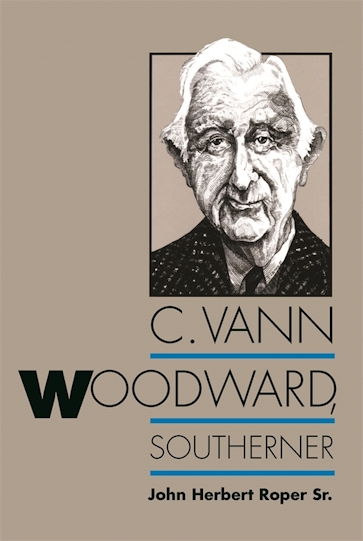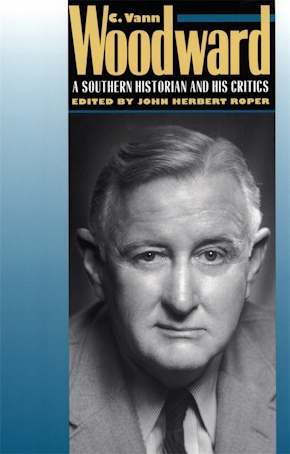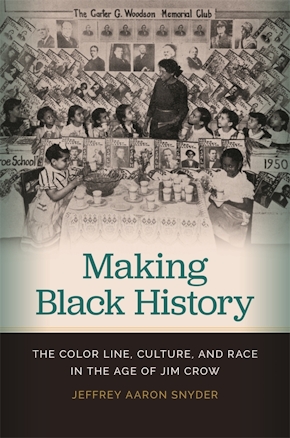C. Vann Woodward, Southerner
Title Details
Pages: 368
Trim size: 6.000in x 9.000in
Formats
Paperback
Pub Date: 02/28/2012
ISBN: 9-780-8203-4106-4
List Price: $34.95
C. Vann Woodward, Southerner
Skip to
- Description
- Reviews
The most influential historian of our time, C. Vann Woodward has forged his place in American learning and culture from two sometimes opposing, sometimes complementary urges: to work for social justice and to reveal the past without bias. Underlying his career has been the knowledge that his native South, because of its traumatic experience of defeat and disgrace, holds within its past truths that could instruct the nation as a whole, perhaps ease it through the dilemmas and racial inequality and social strife, and guide it away from the mad pursuits of war and political repression.
C. Vann Woodward, Southerner is a chronicle of Woodward’s life, of the tumultuous times that have engaged him and shaped his thought, and of the historical profession that has accorded him its highest honors of respect and unstinting criticism. Jack Roper begins with Woodward’s birth, in 1908, to an aristocratic family in eastern Arkansas and his youth in the Oachita valley. By the time Woodward left his home state to study at Emory University, he had already demonstrated the urge toward dissent that drove him, throughout the first decades of his career, to confront social and racial injustice, to press relentlessly outward from his own position of security and confront the civil strife that simmered outside the hedgerows of academia. In Chapel Hill and Atlanta, in New York and Baltimore, in his books and in his actions, Woodward spoke to the present even as he wrote of the past.
By no means uncritical of Woodward’s works, Roper nonetheless shows that books such as Tom Watson: Agrarian Rebel, Origins of the New South, and The Strange Career of Jim Crow have effectively defined the terms of historical debate, often asking the “impertinent first question” that spurred other historians to seek fuller answers. Of those books, The Strange Career of Jim Crow is closest to Woodward’s ultimate concerns and has caused him his gravest doubts—for a time he almost disowned the book that Martin Luther King, Jr. called “the bible of the civil rights movement.” Those doubts came at a time in American history that Woodward found particularly ominous: the Vietnam years when it seemed that the lights of civil rights and social progress had lost their steady glow. In the mid-1970s, however, Woodward regained his political engagement, and today he continues his work of bringing—through numerous book reviews and essays—the insights of the historical profession to the intelligent, concerned reader.
“What has the historian to do with hope?” These words of Woodward’s late colleague David Potter in response to The Strange Career of Jim Crow encapsulate the conflict that both inspired and occasionally beset that book’s author. For it is Woodward’s almost continual commitment to social change that made his books so powerful when they were published, so diminished in strength when examined in later decades. This tension between advocacy and scholarship, between experience and learning both marks the greatest challenge for Woodward and defines his greatness as a cultural figure, as a conscience for his profession and for our time.
This biography is the most penetrating study of [Woodward] by any contemporary American historian. Roper identifies Woodward's crucial importance to modern southern historiography, and argues that the interplay between his life as a southerner and as a reformer determined the content and direction of his writing. . . . Intellectual history and historiographic analysis are deftly intertwined with the achievements and tragedies of the life led. . . . Roper's biography reveals the perils of writing 'committed history,' but simultaneously shows the important role historians play in the development of American society.
—Choice
Roper’s well-written book about one of America’s most distinguished historians deserves attention.
—Journal of American Ethnic History
This study admirably traces the distinguished career of a southerner who has always attempted to balance political and humanitarian concerns with original, insightful and always-provocative scholarship.
—Journal of American Studies
A richly rewarding work. It tells us much about the nature of history as an academic discipline, about the power of ideas within a society, about the subject to which Woodward dedicated his professional life: the American South.
—Atlanta Journal-Constitution



